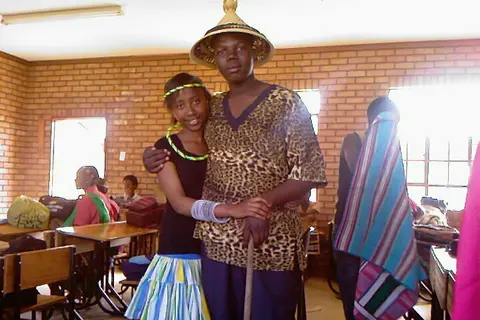Acknowledging the healing power of storytelling for mental health
Mental Health , StorytellingThe first time I was encouraged to review my life story, I was sceptical. The idea struck me as an exercise in self-indulgent navel-gazing, even futility. What good could it do to review a past that couldn’t be changed? But I agreed to try, and what an impact it had.

I came to realise what perhaps should be a simple, obvious truth. It is important first to go within, to look deeply into the things that shape us, to understand context and nuance, to acknowledge and understand those who were present – and absent – during our formative years and the roles they played in how we behave and how we came to view the world. Accepting and owning your personal story is an invaluable gift.
October marks Mental Health Awareness Month, a good time to reflect on one’s own story. But beyond that, we build mental health when we regularly reflect on our own stories. And, if asked, telling our stories openly and vulnerably can also be empowering to others, enabling them to see resonance in your story with theirs.
Healing through storytelling
Narrative therapy is a form of psychotherapy that focuses on helping us separate ourselves from our problems and view our lives as a series of stories. It encourages us to reframe our experiences, identify alternative narratives, and “rewrite” our personal stories in more empowering ways.
If you’re struggling with self-blame, low self-esteem or feelings of helplessness, narrative therapy can help you externalise your thoughts and recognise that they’re not intrinsic to your identity. The process can help you gain a new perspective on your challenges, identify your strengths and values, and develop a more positive self-narrative. We have a choice as to the stories we tell ourselves about ourselves Over the long term, this can help you improve your mental health and grow as a person.
For many people, narrative therapy can feel natural. After all, storytelling is an integral part of our social fabric. It’s how we make sense of our histories, communities, families and lives. It’s how we understand and define ourselves. We tell stories all the time. If we’re paying close attention, we can use these stories to make better sense of our past and present.
Those who find narrative therapy a bit of a challenge often have to adjust to the fact that it is typically quite an in-depth and long-term process. It’s also important that they’re working with the right therapist. A skilled therapist can help ease any discomfort by introducing narrative techniques gradually and adapting to your unique pace.
Finding safe spaces
Of course, you don’t need to go to therapy to tell your story. There are many alternatives available to you. You might consider speaking to a trusted family member or friend, a colleague at work, or a leader in your community or church. You can look for resources online, too.
At Heartlines, our What’s Your Story? project helps people to tell their stories and to hear the stories of others. Its three principles – ask, listen and tell – encourage people to be curious about other people’s narratives, to listen without judgement or trying to fix, and to share their own story when someone invites them to do so.
The project is all about showing that, in sharing our stories, we learn that we have so much more in common with each other than we might initially have anticipated. It prompts us to focus on our points of commonality, rather than our differences. And in the process, helps us to feel united and develop empathy for those around us.
Heartlines has a wealth of resources for individuals, families, schools, working environments and faith-based organisations. And these tools have demonstrated meaningful results. Over the years, we’ve found that those who regularly make personal storytelling part of their lives are more likely to use it on an ongoing basis and to rely on it to improve their relationships with others.
I’ve experienced this first-hand. My own storytelling journey helped me to understand myself better. Asking my mother her story helped me understand her and our complex relationship better. It also allowed me to deepen relationships by helping others understand me better.
Our stories remind us that we are not alone — which is perhaps the most important part of any mental health journey in world in which loneliness is fast becoming a public health crises. It’s worth spending time to reflect on your story and if asked, sharing it. Your story matters.

Garth Japhet
Garth is a medical doctor. After having been part of the founding team behind the health promotion and social change project Soul City, in 2002, Garth decided to use the successful recipe of edutainment for change to turn the spotlight onto the universal values that all South Africans profess to share, but are not always evident in the lives they live. That was the beginning of the Mass Media Project, now known as Heartlines. Garth is the CEO and chief ideas man behind the work that we do.
Featured





